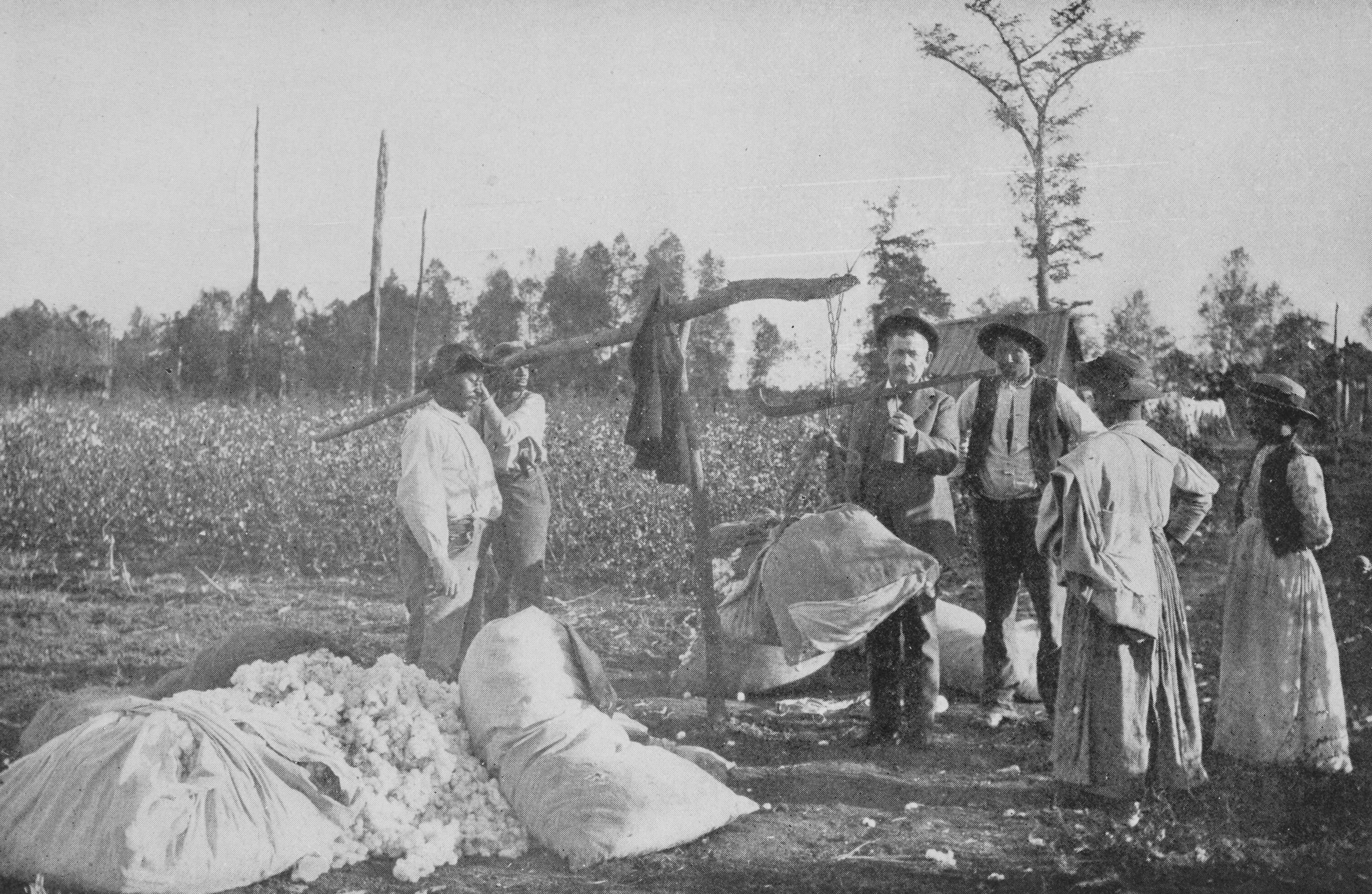Chapter 1
Life After Slavery
Reconstruction defines the period after the Civil War when the federal government controlled former Confederate states. When federal troops were stationed in the South, African Americans made economic progress and elected representatives to local, state, and national office. But when federal troops withdrew in 1877, white southerners challenged African Americans’ rights and freedoms. Violence and intimidation were used to keep African Americans from voting, owning land, and exercising their independence.
1870 Statistical Highlights
90% of African Americans lived in the South and 85% in rural areas.
What is Sharecropping?
Postcard of southern agricultural workers
After the Civil War, African Americans had few opportunities to buy land, and many turned to sharecropping. Under this system, workers paid the landowner a share of the crops while also paying for food, seeds, tools, and rent. Most sharecroppers owed money to their landlord at the end of the year, and many were forced to continue working. Sharecropping kept workers under landowners’ economic control.
Labor and Debt
Children and adults picking cotton
Southern Tenant Farmers Union members
Many landowners wanted sharecroppers to lose money so they could keep them working. Underpaying for crops and overcharging at stores kept sharecroppers indebted to landowners. To protest their poor treatment, sharecroppers began to form unions in the 1930s. The Southern Tenant Farmers Union included both Black and white members in its ranks. Landless farmers faced resistance to their organizing efforts and were often met with harassment and violence. Farmers were also limited by laws that favored landowners.
No matter how good account you kept, you had to go by their account... because he was always right and you were always wrong if there was a difference.
Henry Blake, sharecropper, 1938
Agricultural Tools
Draw hoe
Cotton scale
Agricultural workers used hoes like this to prepare the land for planting and to remove weeds. Scales were used to determine the weight of cotton and how much a worker would get paid. The scales were not always accurate, but workers had to accept the results.
Whoever weighed the cotton determined what profits were made. Workers could not protest if the scales were inaccurate.
Sharecropper’s Contract
Sharecropping contract between Amos G. Robinson and Berry Couch, 1866
This document from Dawson County, Georgia, dated February 1, 1866, is a handwritten sharecropping agreement between Amos G. Robinson and Berry Couch. In the contract, Robinson agrees to give Couch rations, clothing, and a fifth of all harvests resulting from Couch’s labor, plus half of the future harvests worked by the pair. Many freedmen could not read and signed unfair contracts with landowners. Couch signed his agreement with an “X”.
Give us our own land and we take care ourselves; but without land, the old masters can hire us or starve us, as they please.
Attributed to a freedman in South Carolina, ca. 1865
Related Exhibition
Migrating Out of the South
During Reconstruction, some African Americans migrated west, fleeing the South’s difficult labor conditions and violence.



